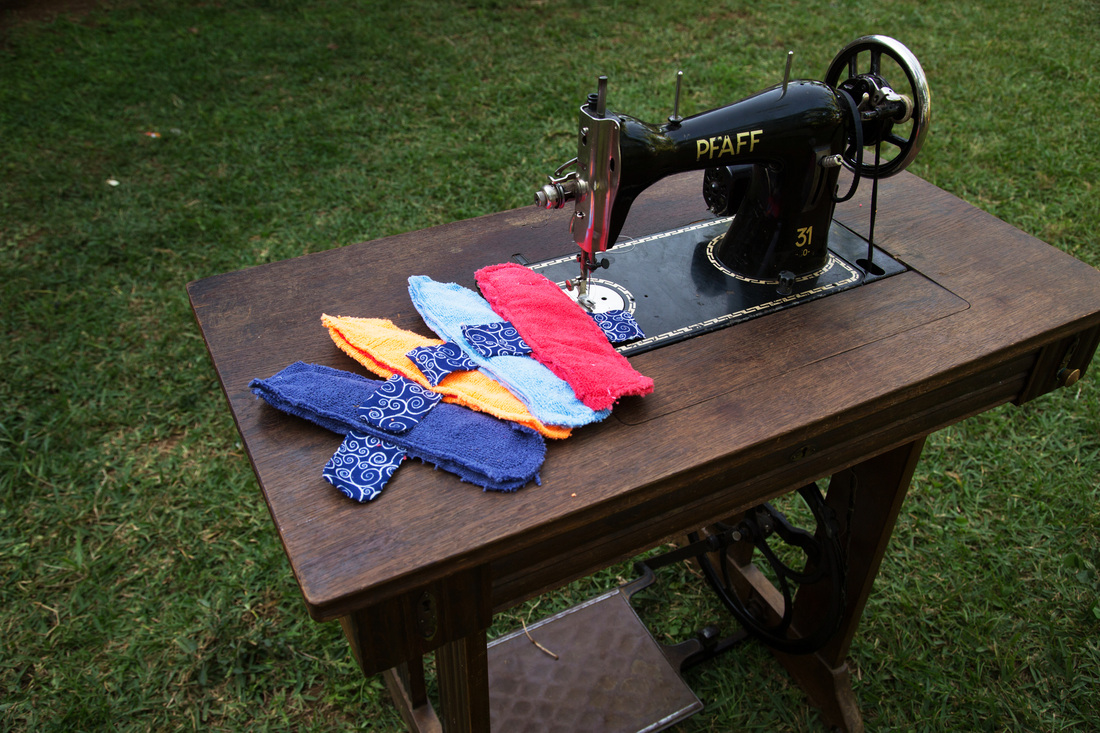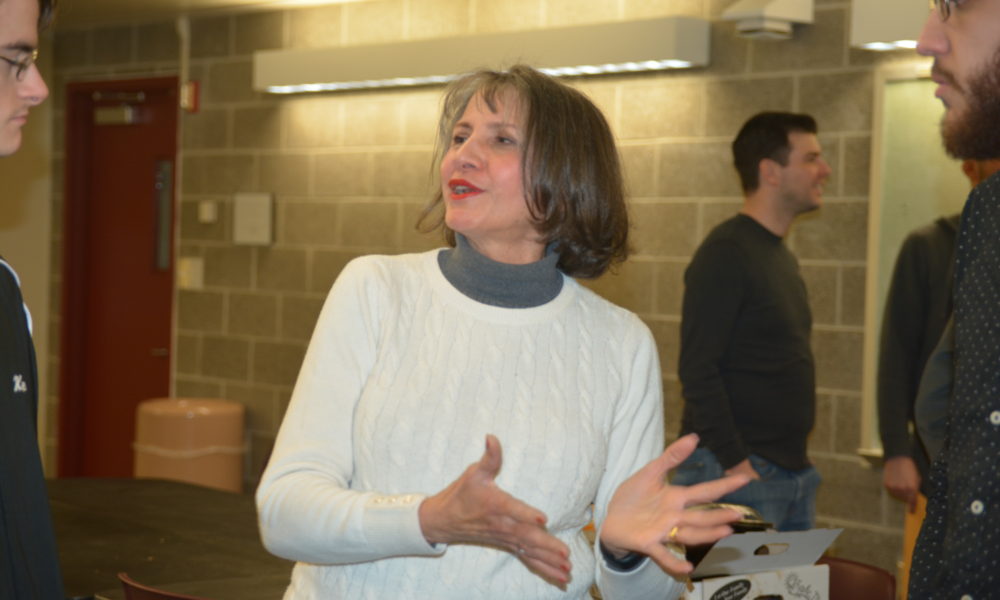In the United States, the average disposable menstrual pad costs about 20 cents. In Tanzania, it’s nearly five times as expensive, at about $1 per pad.
According to Dr. Kamazima Lwiza, a native Tanzanian and the director of Stony Brook University’s study abroad program to Tanzania, many women there cannot afford to buy menstrual products, so they go without.
Young girls stay home from school during their period each month, not only because they lack hygiene products, but also because the schools have few toilets, if any.
“It’s easier to handle yourself if you’re at home,” Lwiza explained. “I don’t want them not to go to school. It’s a shame.”
Lwiza helps organize the study abroad trip to Tanzania. Part of the program includes student-run community service days.
Last summer, two students, Kunika Chahal and Alyssa Dirico, wanted to come up with a project that would help people long after they left Tanzania, something that would “really make an impact,” Chahal said.
After researching and talking with Lwiza, Chahal and Dirico decided they wanted to teach girls how to make reusable pads using materials easily accessible in Tanzania.
Both Chahal and Dirico are sophomore biomedical engineering majors and aspiring surgeons.
Lwiza said the girls took on the project enthusiastically. Initially, they wanted to go to Walmart in the United States to buy what they needed.
“That’s not going to work,” Lwiza said. “When you’re in Tanzania, there’s no Walmart. You don’t want to teach somebody using stuff they’re not going to be able to get. You’ve got to go to Tanzania, get the stuff in Tanzania and create what you want to create …That’s a big challenge.”
But Chahal and Dirico decided to create a prototype before they left anyway. They planned to then go to the market in Tanzania to see which materials they could easily buy.

“We stayed up until 5 in the morning the night before we left for Africa making the pads, gluing our hands together,” Dirico said.
They engineered three different prototypes using felt and a tablecloth, and put them under a sink faucet to test their absorbency.
“It was an interesting adventure for us. We looked at it as an experiment, you know, we’re engineers,” Chahal said, and jokingly added that they used the scientific method to find their best model.
When they arrived in Tanzania, the two students took their prototype to the market. A woman approached them, asking what it was used for.
Lwiza made the students explain, using limited Swahili and handwaving to demonstrate the purpose of their hygiene products.
“The woman got it,” Lwiza said. “She got so excited. She said, ‘I want to learn. Teach me how to do it.’ To me, that was the best part, because a woman like that is going to teach others.”
By the time they were done explaining, they had gathered a crowd of “at least 50 women” who were interested in learning how to make reusable pads.
The two students planned their pad-making class for women entirely by themselves. Their fellow Stony Brook students were more interested in organizing days of physical activity and mental health awareness.
That was fine for Chahal and Dirico. “We’ll just do it ourselves,” Dirico said.
“We need to do this. Sure, we might break some social barriers a little bit, because this isn’t something talked about, but we’ve got to try somewhere. Even if we only teach one,” Chahal said.
Although only about 30 women came to their class, which they advertised through word of mouth and one poster, Chahal and Dirico hoped this would create a snowball effect, with the women teaching friends and family members how to make the hygiene products.
In all, it cost about $60 to make 50 reusable pads with scraps to spare—much less expensive than the $1 per pad that Tanzanian women usually spend.
The experience had a profound impact on both students, who said they are now more grateful for easily accessible feminine hygiene products in the United States.
But they’re not finished with their work. On Wednesday night, the two students were selling chocolate bars and halal food to fundraise for the next group of study abroad students travelling to Tanzania.
Additionally, they are in the beginning stages of forming a club at Stony Brook, so students can make reusable pads that would be distributed in Tanzania, or even across the world.
Chahal and Dirico are working with the undergraduate student government to try to fund their idea, and they also plan to discuss logistics with the study abroad office to see whether it would be feasible to send reusable pads and instructions to make them with future study abroad students.
Lwiza, too, is hoping to expand the reach of Stony Brook’s study abroad program to Tanzania both by increasing the number of students who go there from 20 to 50 and by increasing the budget. Last summer, all of the money used to create the products was fundraised by the students, but Lwiza thinks that may not be enough this year.
He plans to ask for funds from banks or other organizations that might be interested in what his students are doing.
“I think we’re changing lives,” Lwiza said. “And that’s the kind of impact I want to see. So, we learn, but we leave a little mark where we go.”
Correction: Kunika Chahal’s name was spelled incorrectly on a previous version of this article. While the mistake was fixed on the web, it unfortunately found its way into the print issue before we had a chance to fix it. (8/22/18)




Comments are closed.